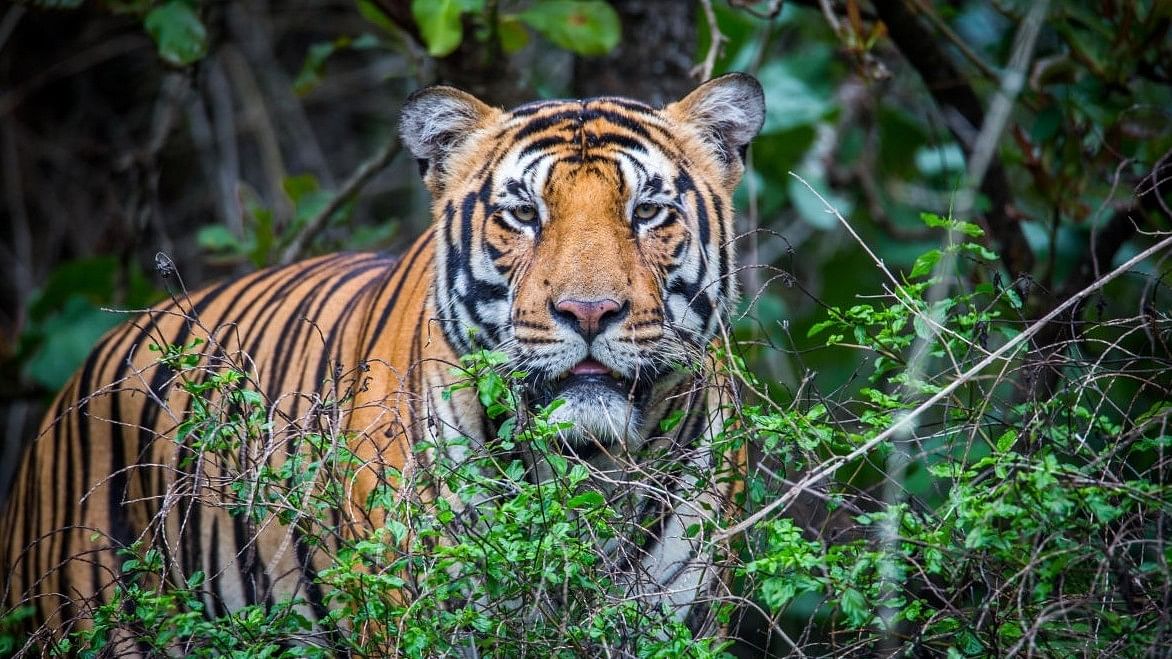
Recently released data from the National Tiger Conservation Authority (NTCA) indicated that the number of tigers in PTR exceeds 71.
Credit: DH photo
Pilibhit (UP): A tiger census in the forests of the Pilibhit Tiger Reserve (PTR) will commence on October 25 and will be conducted in two phases, according to officials.
"The first phase of the census will begin on October 25 and will last for one month. We will deploy 402 cameras at 201 selected locations to accurately assess the tiger population," Manish Singh, Deputy Director of Pilibhit Tiger Reserve, told PTI.
According to official records, the PTR covers an area of 730.24 square kilometres, which includes approximately 602.79 square kilometres of core area and about 127.45 square kilometres of buffer zone.
Forest department officials said all preparations for the two-phase campaign have been completed.
"There is a strong possibility of an increase in the tiger population. Recently, several female tigers have been seen with cubs, and footage of these cubs has been captured by the cameras, with some related videos going viral," Singh said.
He said that male cubs typically separate from their mothers at around 18 months and female cubs at about 22 months, indicating potential growth in the tiger population.
The deputy director added that accurately counting tigers presents a significant challenge for the department. Two trap cameras equipped with special sensors will be placed on two trees facing each other at potential tiger locations.
He said these cameras capture images of wildlife movement, which are then analysed based on physical characteristics and stripes to identify and estimate the tiger population.
Recently released data from the National Tiger Conservation Authority (NTCA) indicated that the number of tigers in PTR exceeds 71.
Forest officials said that the tiger population in PTR was just 24 in 2014, but this figure has increased significantly to over 71 by 2022. This growth has earned Pilibhit Tiger Reserve the T2X Award and several other international accolades.
Located on the India-Nepal border, the Pilibhit Tiger Reserve spans across the districts of Pilibhit and Shahjahanpur in Uttar Pradesh. The reserve is part of the Terai Arc Landscape within the Upper Gangetic Plains biogeographical province.
Several rivers originate within the reserve, including the Chuka, Mala, and Khannaut rivers. The Sharda River forms the northeastern boundary of the reserve, while the Ghaghra River flows along its southwestern edge.
The PTR is one of the 50 Project Tiger reserves in India. It is home to several rare and endangered species, including the Bengal tiger, Indian leopard, swamp deer, Hispid hare, and Bengal florican.